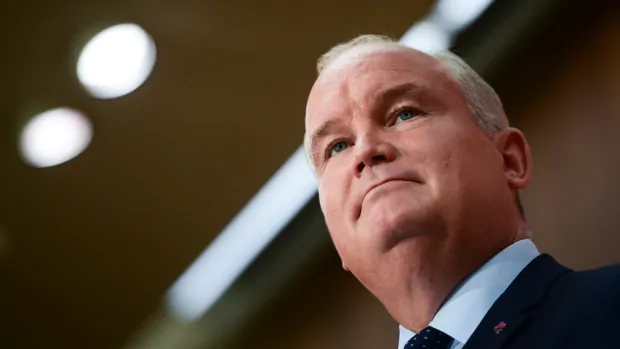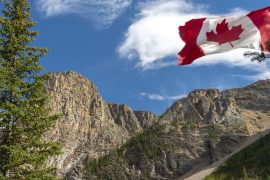Erin O’Toole’s Conservatives say they are no longer receiving the federal wage subsidy and will pay back the funds the party has received so far.
The Liberals, meanwhile, say they will stop accepting the backstop but have no plans to pay back what they have received.
The move by the Tories follows on a promise that O’Toole made during the leadership contest to stop taking the Canada Emergency Wage Subsidy (CEWS) and to pay back “over time” what the party has received.
“O’Toole believes the wage subsidy was designed to help businesses survive the economic side-effects of the COVID-19 pandemic lock-down, not to subsidize political parties,” Conservative MP Peter Kent said in a post on his Facebook page.
The post goes on to say that O’Toole has challenged both Prime Minister Justin Trudeau and NDP Leader Jagmeet Singh to follow his lead. The Bloc Québécois and the People’s Party of Canada did not apply for the CEWS.
The Conservatives have not revealed how much they received in CEWS payments. The NDP says it will not follow O’Toole’s lead.
“We will continue to receive the subsidy to support our workers and their families, prevent layoffs, focus on priorities to support Canadians during this pandemic,” said Anne McGrath, the NDP’s national director, in an email to CBC News.
“Beyond the end of August, the Liberal Party of Canada is suspending further applications for the emergency wage subsidy at this time, with grassroots fundraising now stabilizing as our economy and communities safely and gradually get back on their feet,” said Liberal Party spokesperson Braeden Caley in a statement emailed to CBC.
The party did not explain why it is not paying back the money. It said the subsidy it has received to date supported more than 80 staff members across the country during the lockdown.
“The party has not been forced to lay anyone off due to the impacts of COVID-19 at this time, which ensured that team members like translators, IT professionals and local field organizers were able to continue to support vital democratic engagement work and their own families through this difficult time,” Caley said.
Party fundraising so far
Although both the Liberals and the Conservatives collected less in donations between April and June of this year than they did at the same time last year, they continued to receive significant donations.
The Conservatives pulled in more than $3.5 million in the second quarter of 2020, while also receiving about $436,000 in transfers from candidates during its leadership campaign, for a total of roughly $4 million. The party raised more than $6 million from both donations and transfers during the same period in 2018.
The Liberals pulled in $2.6 million in individual donations so far this year, compared with just under $3.1 million in 2018.
The New Democratic Party received $1.3 million during the second quarter this year, compared with just $872,000 during the same period two years ago, while the Bloc Québécois received $131,000 in second-quarter donations, up from a meagre $42,000 two years ago.
The Green Party took in more than $633,000 from individuals and more than $87,000 from its leadership candidates in the second quarter, for a total of slightly more than $721,000, up from $572,000 two years ago.
Donations are always highest during election years, so comparisons with 2019 would not be relevant.
The Green Party of Canada also received funding under the CEWS program. Party spokesperson Rosie Emery told CBC News that the party plans to continue taking the subsidy.
“If the Green Party is still eligible to receive the CEWS, it will continue to apply for it,” said Emery. “The party will repay any excess wrongly received for prior claim periods as soon as possible, after confirming with the [Canada Revenue Agency].”

Devoted web advocate. Bacon scholar. Internet lover. Passionate twitteraholic. Unable to type with boxing gloves on. Lifelong beer fanatic.





